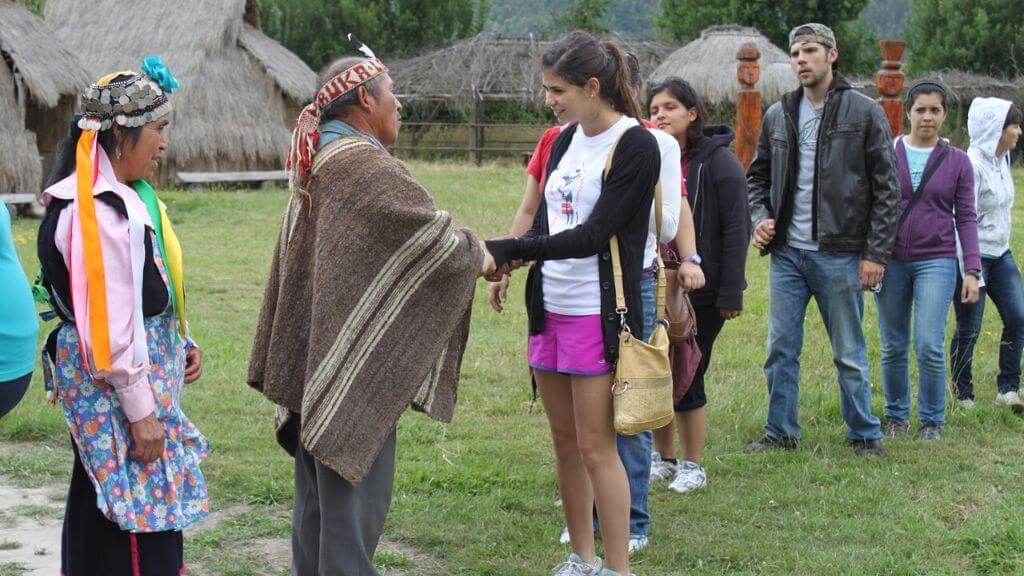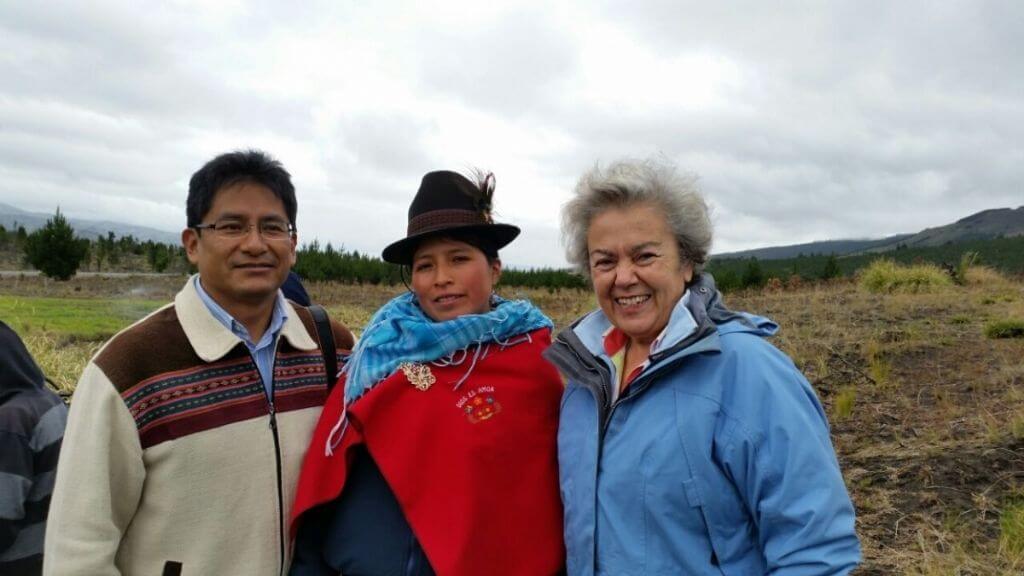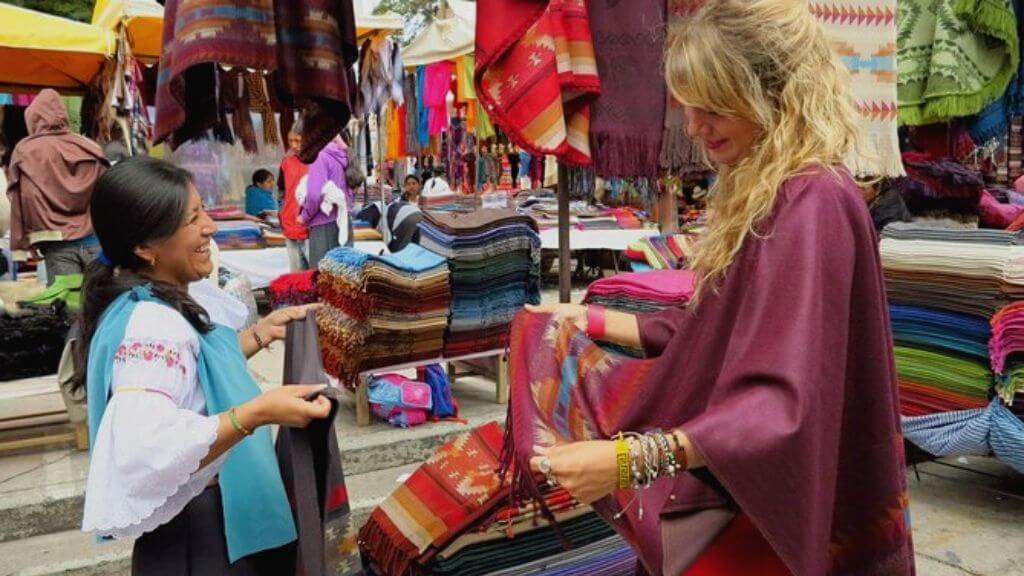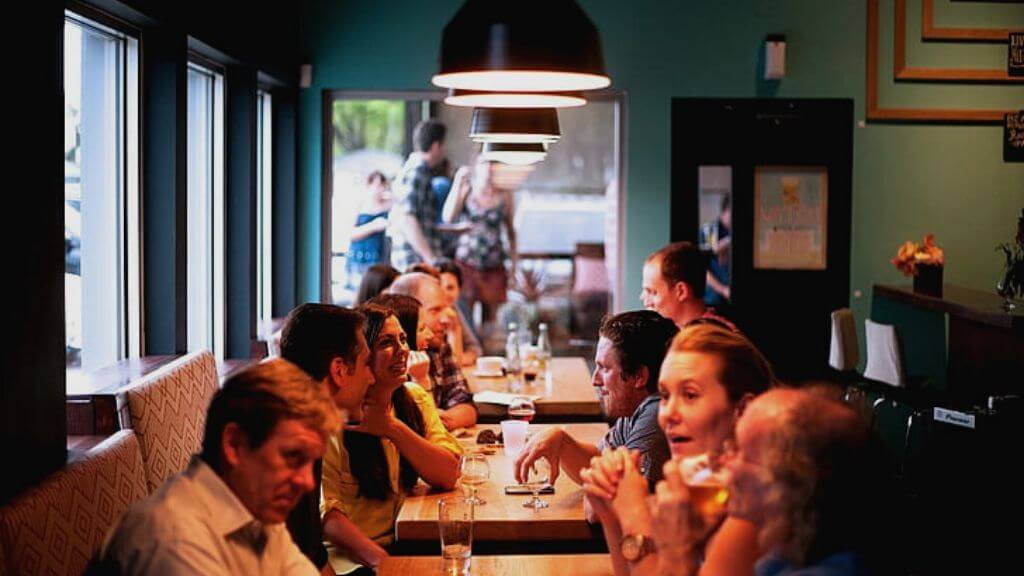Just like in any other country, there are social norms and local customs in Ecuador that might easily throw the unprepared traveler off-guard. The good news is that learning Ecuadorian etiquette is straightforward, good manners are appreciated here, and a little politeness can go a long way. If you plan to visit our country anytime soon then don't worry, we've got your back with this tourist guide to Ecuador customs, traditions and etuiquette.
Keep reading for a few rules of thumb that can help you navigate Ecuador’s cultural nuances, without stumbling over traditions that are easy to respect. We'll cover greetings and polite phrases in spanish, how to bargain and tip without causing offence, plus other general tips about Ecuador customs.
SECURE YOUR ECUADOR TRAVEL
Get a FREE personalised quote todayPolite Greetings in Ecuador
The people of Ecuador have a warm and friendly spirit and are very hospitable folk. Ecuadorian society is an intriguing mix of being very social, while at the same time formal and conservative. Formalities typically increase in the central highlands, while the coastal region and rainforest are more easy-going.
Wherever you go in Ecuador, politeness is a feature of the culture. In general, it is customary to greet people when entering shops, hotels, taxis, etc, or in smaller villages when you pass locals on the street.
The most typical greetings in Ecuador are:
• Hola (hello)
• Buenos Días (good morning)
• Buenas Tardes (good afternoon)
• Buenas Noches (good evening)
• ¿Como está? (how are you?)
On social occasions, body language is also an important Ecuador custom when greeting people, where physical contact is the norm. For a new acquaintance a handshake is usually most appropriate, while for greeting friends, or people you know, a single kiss on the cheek or hug is expected. If you are unsure then just follow the lead of the other person. Expect to use the same greeting again when saying goodbye.
Ecuador Customs: Conquering the Language Barrier
The language barrier is another tricky subject when traveling here if you aren’t familiar with much Spanish. Here are a few tips for making the experience a fun exchange.
For starters, try to learn some basic survival Spanish before you travel, or take a few classes during your trip – this can really help to open up your travel experience, and make the most out of your time in Ecuador. Free online courses like Duolingo can get you started with the basics, or Happy Gringo can help to set up a few lessons with a local teacher in Quito or Cuenca. You’ll be surprised how far just a few words can go when traveling here.
For now, here are a few Spanish phrases that might come in handy:
• ¿Habla Inglés? (Do you speak English?)
• ¿Como se dice …? (How do you say …?)
• Como te llamas? (What is your name?)
• Por Favor (Please)
• Gracias (Thank you)
• Con permiso (Excuse me)
Finally, if your language skills do fail you, then hand signals and a smile will usually keep you out of trouble, or an English-speaking Ecuadorian might jump to your rescue.
Good Manners in Ecuador
Keep in mind that Ecuador is a very traditional society, especially in Quito and Cuenca, where family plays an important role, and old-fashioned ideals such as respect for your elders are taken seriously.
When addressing somebody older than you, then use the formal address to show respect:
• Señor (for men)
• Señora (for women)
• Señorita (for a young lady)
• Also, use the politer form of ‘you’: ‘usted’ instead of ‘tu’ (informal).
This respect for elders is especially apparent in small villages and indigenous communities, where the Ecuador traditions of generations put things into a clear perspective.
Another common phrase that you will hear at mealtimes is:
• Buen Provecho (Good Appetite)
This is like saying “bon apetit”, and is often even said between complete strangers on different tables in a restaurant.
GET FREE ADVICE
From an Ecuador destination expert todayBargaining etiquette in Ecuador
Bargaining is another concept that often leaves those who visit Ecuador in the dark. In some places, like the handicraft market of Otavalo, it is standard practice – asking the price and then countering with a lower offer is the way things work. In other places like shops or restaurants bargaining is not usual and may cause a frown.
So, how to bargain when shopping in Ecuador, without causing offense?
DO:
• Haggle at markets
• Be polite but firm
• Enjoy the experience to interact with locals
• Walk away with a smile, even if you don’t reach a good deal
DON’T:
• Haggle in shops or restaurants
• Haggle in taxis – instead, ask them to use their taxi meter
• Be too aggressive in your price offers
• Be rude or show frustration
Tipping in Ecuador
Tipping habits and expectations vary right across the world, even Europe and North America have vastly differing etiquettes that can easily walk the uninitiated directly into problems. Ecuador customs for tipping are actually quite simple, the basics are as follows:
• In most restaurants and cafes in the city, a 10% flat service fee is already added to the bill. While this is supposed to be shared between the employees, in many establishments the servers never see that money. So you might consider leaving a little extra cash on the table if the service was very good.
• Tips are also expected by guides and drivers for tourist services, on day tours or extended trips like cruises of rainforest lodges.
• Tips are not expected by bar staff, hairdressers, taxi drivers, or most other services.
Punctuality in Ecuador
Similar to most Latin countries around the world, the concept of time is rather different from that of Europe or USA. Ecuador runs on La Hora Ecuatoriana (Ecuadorian time), meaning that punctuality is usually rather relaxed, and things often get done Mañana (tomorrow).
For many foreign visitors or expats living here, this can be the single most annoying local custom to get used to, but as with other cultural norms it is possible to adapt:
• Learn to take it in your stride – it is part of the Ecuadorian lifestyle, so take a breath, smile and slow down with them.
• When meeting a friend, take a book along with you, to kill time in case you are left waiting.
• Communicate using Whatsapp or Facebook to remind your friend about the meeting time & place, and so they can easily let you know when they are running late.
• If you are invited to a party then aim to arrive an hour or so late, otherwise you will likely be the very first one there and might make the host uncomfortable as they will not expect anyone to arrive punctually.
These punctuality rules are of course very generalized, so take care if you do have the luck to meet an unusually punctual Ecuadorian!
Machismo in Ecuador
Machismo (male chauvinism) is common in most Latin countries, so female visitors need to be aware of a few things:
• Compliments from male strangers passing in the street is common, for some this can be flattering, for others unwanted attention. Either way, it is a cultural nuance, and most easily dealt with by simply walking past and ignoring it.
• Men see their social role as protecting and looking after women, so be careful to not cause your male friend/companion to lose face in a social context. For example, usually, the man will expect to pay the bill at a restaurant, so either let him do so or tread carefully to persuade him to share the check or let you pay.
• Ecuadorian boyfriends can become jealous quite easily, so take care to include him when talking to other male friends, and ask if he is ok if you dance with one of them. Naturally, this works both ways, so ask him to respect you in the same way when he is with his female friends.
For more information about the different trips that Happy Gringo Travel can arrange that include guides who can take you deeper into the county’s traditions and help navigate confusing situations, contact a member of our staff. We'll also be happy to answer any additional questions you may have about Ecuador customs and traditions, so if you are curious about something not covered in this blog then please just feel free to ask us.
Book With The #1 Trusted
Ecuador Travel Agency
As you can see, becoming familiar with Ecuador customs and culture, and the expected etiquette is a big part of any trip here. It's very easy to learn the basics, which go a long way to making your Ecuador trip a complete success. Above all, a better understanding of Ecuador traditions will open up more fun interactions with local people as you travel, and no doubt make you many new friends.







